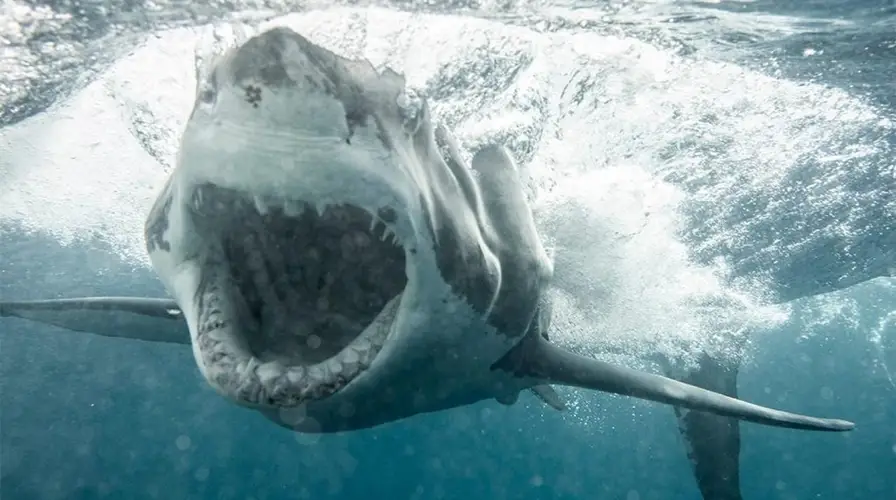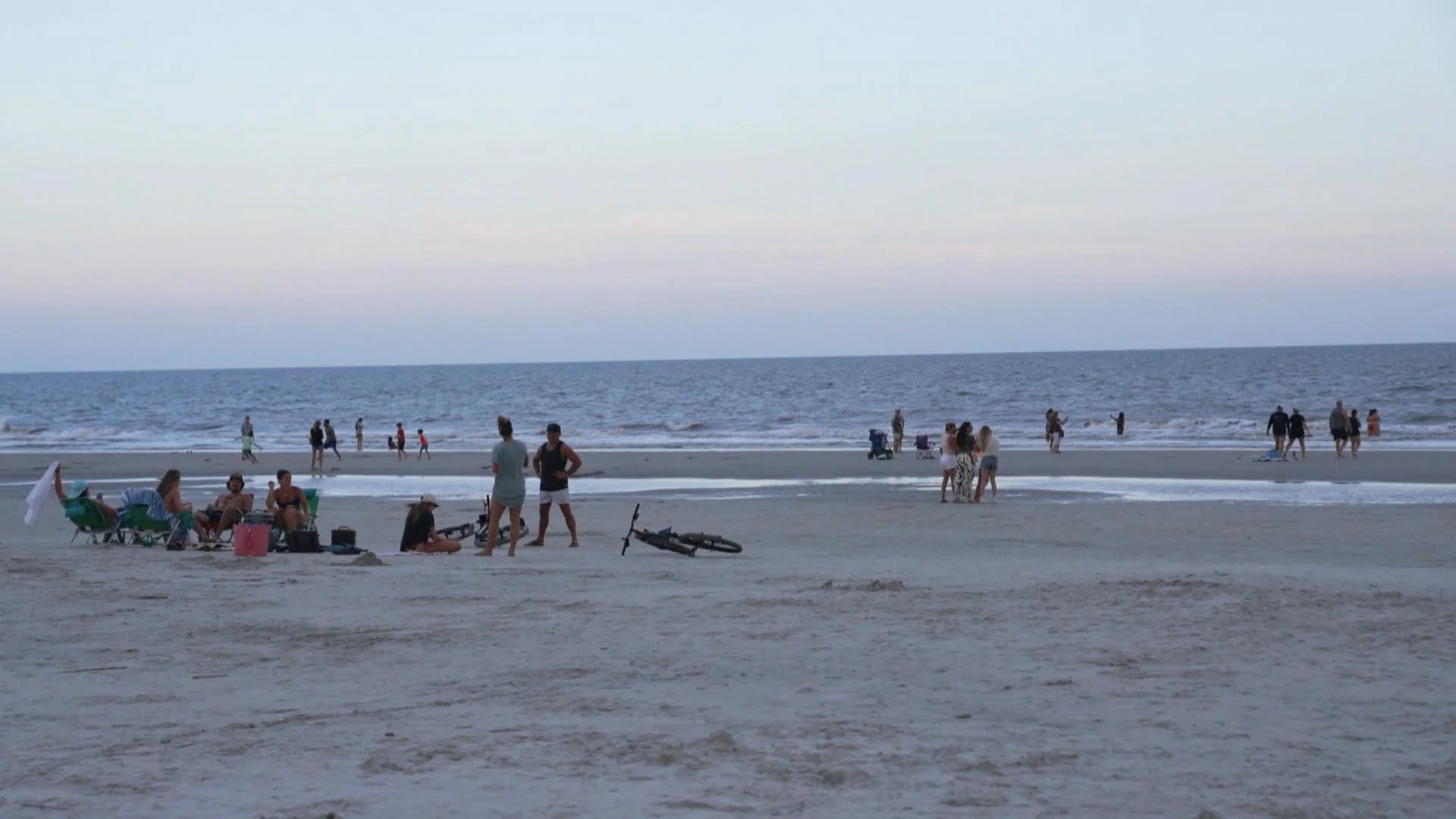North CarolinaThis spring’s capture and release of a huge great white shark off Cape Hatteras brought attention to a worrying trend: shark sightings are increasing near East Coast beaches, and North Carolina is smack in the center of it.
Two surf anglers caught the 12- to 13-foot monster while pursuing bluefish and drum. Captured on camera and aired by local station WTKR, the viral moment depicts the fisherman catching the shark and then safely releasing it back into the Atlantic.
Sharks Are Moving Closer to Shorelines
According to marine biologists, these observations are not unique. According to OCEARCH and NOAA experts, environmental disturbances such as changing currents and increased ocean temperatures are causing sharks to approach coastlines that are inhabited by people.
According to OCEARCH experts, shark populations are adjusting to the new reality. Their customary migration patterns are being altered by the warming oceans.
Young sharks are being forced to migrate earlier and farther than usual in search of prey and adequate habitats, increasing the likelihood of unplanned human interactions. This is happening when shark nurseries, such as the New York Bight, become unstable.
North Carolina Hotspot for Shark Activity
Numerous great white sharks have been spotted in the area of Nags Head and along North Carolina’s Outer Banks in recent months. Scot, a 12-foot, 1,644-pound adult male shark that was initially tagged in Nova Scotia, is one particularly noteworthy sighting. According to researchers, Scot is moving southward toward warmer waters in pursuit of food.
Concern was increased when OCEARCH confirmed the return of Contender, a 30-year-old, 14-foot shark that vanished from trackers then surfaced on June 7 close to Pamlico Sound. Contender has crossed the Atlantic almost 1,900 miles since January.
Beachgoers Urged to Stay Cautious
Scientists like Dr. Harley Newton, OCEARCH’s head veterinarian and shark expert, are warning tourists to be vigilant and knowledgeable as beach season approaches. She gave advice on how to stay safe when going into the ocean:
-
Avoid swimming at
dawn or dusk
-
Stay
close to the shoreline
-
Swim with a partner
-
Refrain from wearing
sparkly jewelry
, which could attract predators
Dr. Newton suggests that you never turn your back on a shark and instead maintain eye contact while backing away gradually.
She claimed that the ocean is a wild area. It could be wise to get out of the water if you spot fish jumping. Sharks are attracted to the bait balls.
Sightings Prompt Community Conversations
In coastal areas, the recent sightings are also igniting fresh conversations. North Carolina’s beaches are becoming a part of a larger ecological awareness moment, with families rethinking their holiday plans and marine conservationists demanding more education and tracking support.
Experts remind the public that shark encounters are still uncommon, despite media sensationalism. But when nature changes nearer the coast, people need to learn to adjust respectfully and carefully.
Do you want to see more updates like this? Visit SaludaStandard-Sentinel.com to read more breaking stories on safety and wildlife.












